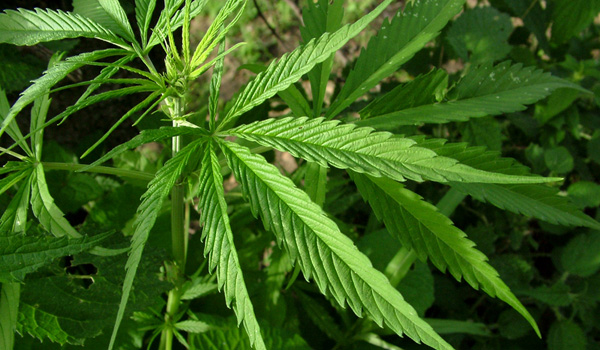Pot Smokers May Have Lower Risk of Obesity

Despite the tendency of marijuana users to experience the "munchies," pot smokers may have a lower risk of obesity that those who don't use the drug, a new study finds.
The results show the prevalence of obesity is lower among people who frequently smoke pot compared with those who have never inhaled.
The researchers said they were surprised by their initial results, because they expected to find the opposite. So they examined a second sample of people, and found exactly the same result. Together, the two samples studied more than 50,000 people.
The reason behind the link is not clear. It could be that people who use cannabis also engage in other behaviors that lower their obesity risk. Or it may be that pot smokers exercise more or have a specific diet that keeps them thin, said study researcher Yann Le Strat, a psychiatrist at Louis Mourier Hospital in France.
"On a personal point of view, I would be surprised that cannabis use is associated with a higher rate of physical activity, but this cannot be ruled out," Le Strat told MyHealthNewsDaily.
Another possibility is that components of cannabis may help people lose weight . If this turns out to be the case, researchers should investigate which components these might be and try to put them into drug form, Le Strat said.
Cannabis and obesity
Sign up for the Live Science daily newsletter now
Get the world’s most fascinating discoveries delivered straight to your inbox.
Cannabis use is known to increase appetite. In studies, drugs have been developed to block a receptor in the brain that is activated by cannabis compounds (called the cannabinoid CB1 receptor) in the hope that the drugs would reduce hunger. However, very few studies have looked at the link between cannabis use and obesity.
Le Strat and colleagues examined data from two national surveys in the United States called the National Epidemiologic Survey on Alcohol and Related Conditions (NESARC) and the National Comorbidity SurveyReplication, involving about 41,600 and 9,100 people, respectively.
Between 4 and 7 percent of participants in these surveys reported using cannabis at least once in the last year.
Obesity was assessed using participants' body mass index (BMI).
The survey showed that about 22 to 25 percent of people who don't smoke pot were obese, while 16 to 17 percent of cannabis users were obese.
Obesity was less common among users who smoked pot more frequently. For instance, the NESARC survey showed about 14 percent of participants who used cannabis three days a week or more were obese, the researchers said. Between 0.7 and 1.8 percent of the sample smoked marijuana this frequently.
The participants reported their own BMI as well as cannabis use, so if they did not give accurate estimates of these measurements, the results could be skewed.
Don't smoke pot
Regardless of the effect of cannabis on obesity, Le Strat said she does not recommend people smoke cannabis to lose weight. Cannabis has well-known physical and mental health consequences, including an increased risk of psychosis .
"As an addiction psychiatrist, I see every day people struggling with cannabis dependence. I would not recommend smoking cannabis for any reason," Le Strat said.
The study was published Aug. 24 in the American Journal of Epidemiology. One of the authors of the study has submitted a patent application in Canada entitled ''Use of Marijuana and Compounds Therein for Treating Obesity."
Pass it on: Obesity is less common in people who smoke cannabis.
- Lose Weight Smartly: 7 Little-Known Tricks That Shave Pounds
- 10 New Ways to Eat Well
- Alcohol and Pot Damage Young Brains' Decision-Making Center
Follow MyHealthNewsDaily staff writer Rachael Rettner on Twitter @RachaelRettner. Find us on Facebook.

Rachael is a Live Science contributor, and was a former channel editor and senior writer for Live Science between 2010 and 2022. She has a master's degree in journalism from New York University's Science, Health and Environmental Reporting Program. She also holds a B.S. in molecular biology and an M.S. in biology from the University of California, San Diego. Her work has appeared in Scienceline, The Washington Post and Scientific American.









